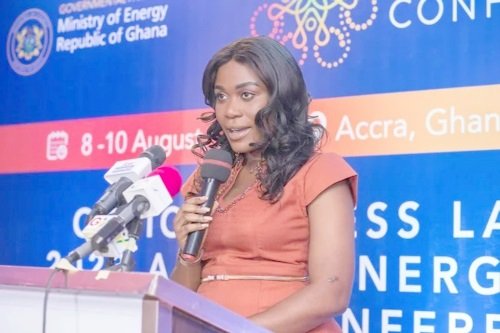The conference will provide a forum to engage in insightful debates, share ideas, and look into long-term solutions to the problems the continent’s energy sector is currently facing.

Launched recently, the high-level Africa Energy Technology Conference will examine the most recent technological advancements and regulatory frameworks required for the transformation and sustainable growth of the continent’s energy sector.
The “Africa Energy Technology Conference” would bring together business executives, government officials, researchers, and innovators from all over the continent to promote cooperation and innovation in the area of energy technology.
The conference, which will be held under the theme “Africa at the Forefront of Energy Technology and Policy Integration in a Just Energy Transition,” will provide a forum for stakeholders to engage in insightful debates, share ideas, and look into long-term solutions to the problems the continent’s energy sector is currently facing.
The three-day exhibition would be organised by the Africa Energy Technology Centre (AETC) in coordination with the Ministry of Energy and take place in Accra from Tuesday, August 8 to Thursday, August 10, 2023.
The President of Ghana, Nana Addo Dankwa Akufo-Addo, will be the Special Guest of Honor at the event, along with other dignitaries like the Vice-wife, President’s Samira Bawumia, and the Minister of Energy, Mathew Opoku Prempeh.
Herbert Krapa, the deputy minister of energy, said that because Africa lacked the industrial base necessary to drive widespread energy consumption at the lowest prices, the continent was not unaware of its energy challenges. He was speaking to attendees at the conference’s opening ceremony in Accra on 21 June.
The country aims to transition the global energy sector from fossil fuels to zero carbon by 2070, with a 2.4% renewable energy penetration and 95% conversion of thermal plants to natural gas.
“In the midst of this, the need for energy in Africa is growing and will only continue to grow. Technology will enable African energy systems to expand to meet this rapidly expanding demand. The solution, according to him, is technology that is effective, trustworthy, resilient, and reasonably priced.
As a result, Mr. Krapa claimed that the conference was timely because it would give the continent a chance to introduce new paradigms for policy in the energy sectors.
Therefore, he said, “let’s work together to use technology for change as global investment is shifting and technology costs for renewables are declining.”
Dr. Thomas Manu, the chair of AETC’s board, stated that in recent years, many nations, particularly developing nations, had engaged in discussions about energy transition and that Africa, which faced challenges with regard to quality, was pleading for a just transition in the energy industry.
He explained that this was due to the fact that Africa was unable to transition in the same way as developed nations, necessitating the search for indigenous technologies and the adaptation of existing ones in order to do so without negatively impacting the economies of the participating countries while also taking into account energy security and ways to address energy poverty in order to actively industrialize and spur economic growth.
Dr. Robert Sogbadji, Deputy Director of Renewable and Nuclear Energy at the Ministry of Energy, stated that the conference aimed to engage stakeholders on Africa’s transition options for successful, self-sufficient transition.
AETC founder Emelia Akumah aims to promote a just and equitable energy transition for Africa, prioritizing sustainability, inclusivity, and economic growth. The conference will provide a platform for stakeholders to share knowledge and explore innovative solutions, fostering a more sustainable and inclusive energy landscape.